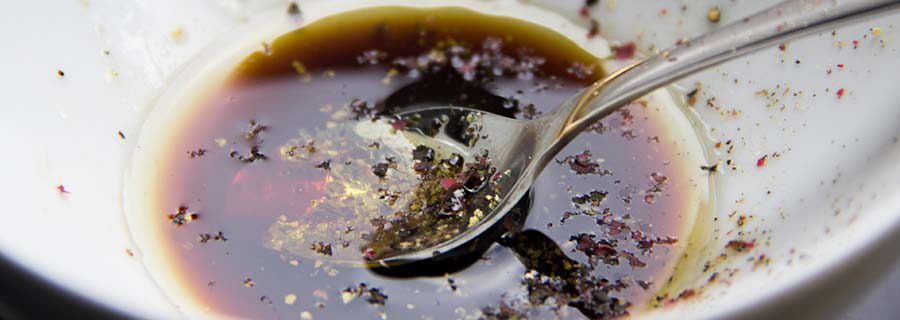The basics of a marinade
Marinade is used to macerate food before cooking it. Whether marinating red meat, poultry, vegetables, tofu or any other food, the liquid must completely cover the pieces and the whole must be placed in an airtight container. The maceration time can vary from thirty minutes to a few days depending on the size of the pieces and the type of food.
Marinades can be used to enhance the flavor of foods, to soften their flesh, or to extend their shelf life.
A good marinade must contain three types of ingredients: an acid element, a fatty element and aromatics.
– The acid element is used to tenderize the meat. Lemon juice, lime juice, Dijon mustard, yogurt, apple cider vinegar, wine or balsamic vinegar are examples of acidic elements.
– The fatty element is used to disseminate flavors. Several aromatic molecules are soluble in oil. Olive oil, canola, coconut oil, or another variety may be used depending on the desired flavorings.
– Aromatics are used to enhance the taste of food. Add oregano, thyme, parsley, coriander, shallots, garlic, cayenne pepper, fresh ginger, cumin, soy sauce, maple syrup, or other fine herbs and spices, depending on the flavor you want to give to a dish.
The stiffer a piece of meat is, the longer it should marinate. For example, to tenderize a flank steak, it can be marinated for 48 hours, while a few hours will suffice to give flavor to a pork tenderloin or a chicken breast, both of which are already tender. As for fish with delicate flesh, it is advisable to prepare a less acidic marinade and immerse them for a short time (30 minutes to 1 hour), to prevent them from cooking in it.
Marinade must not be eaten after raw meat has soaked in it. If it is to be used for brushing, it must first be boiled for 5 minutes and allowed to cool. It is better to set aside a quantity of the mixture for consumption later, before marinating the meat. Some less acidic marinades can be reduced and used to make a sauce.


Login to post a comment!